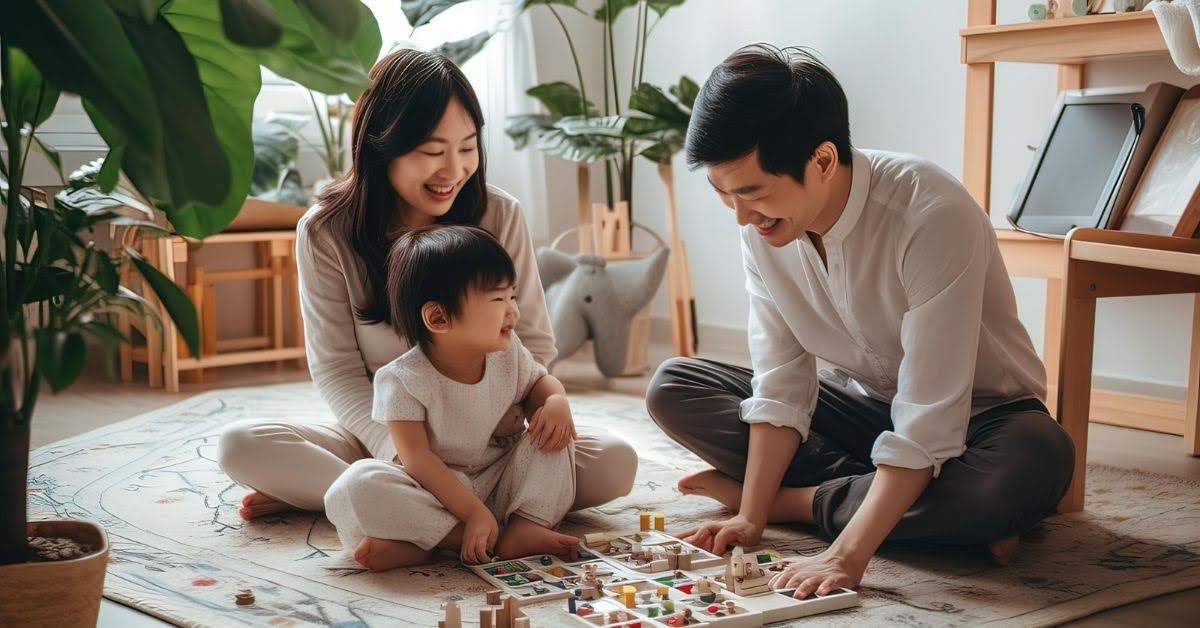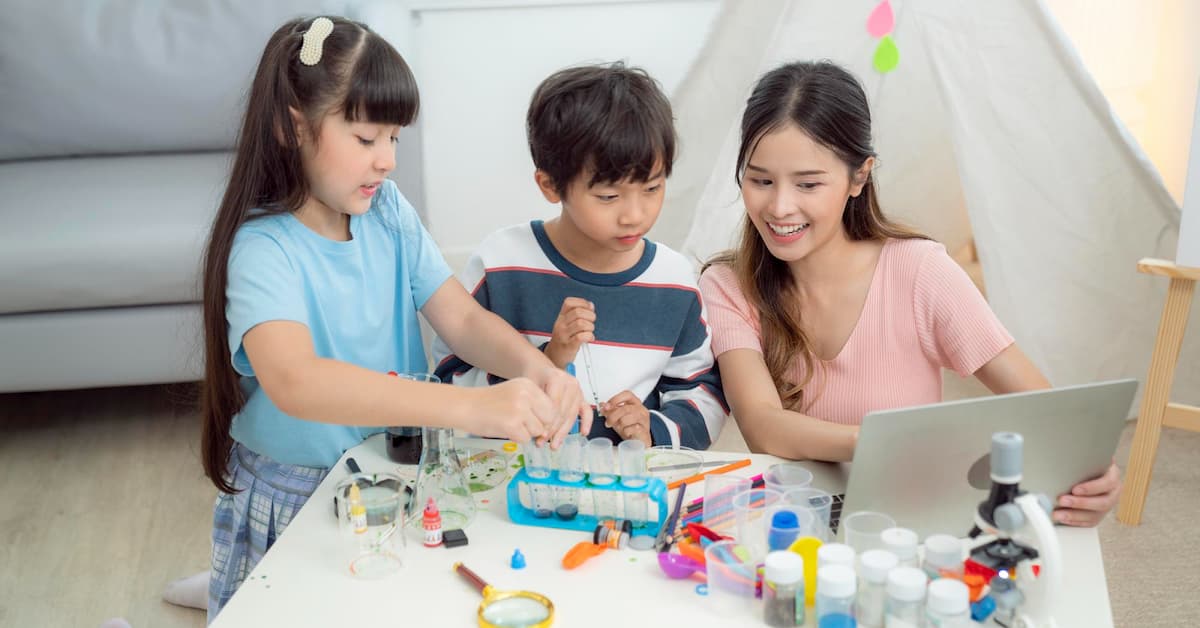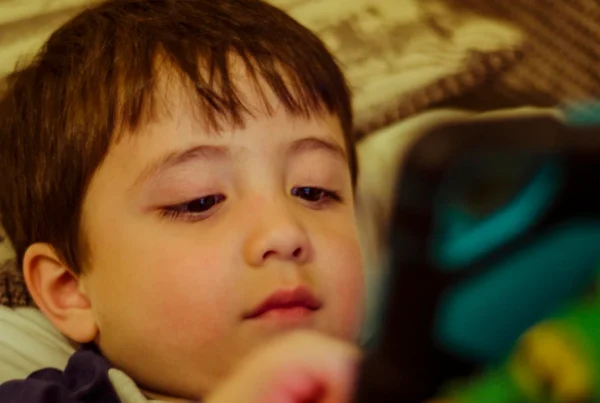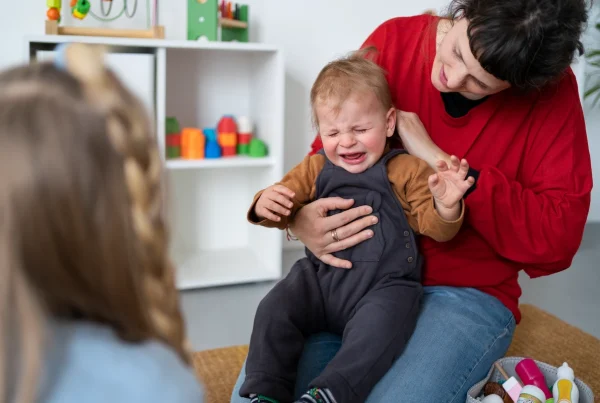Infusing play into a child’s routine is more than just about the fun—it’s a powerful tool for growth and development. Playful learning can help build essential skills while engaging children’s natural curiosity. Through a Play-Based Learning approach, teachers and parents can ensure that children gain academic knowledge and build crucial cognitive, social, emotional, physical, and spiritual foundations at the same time.
In this article, we’ll explore the significant impacts of playful learning on early childhood development while highlighting its role in shaping smart and confident individuals.
What is Playful Learning?
Playful learning, a key element of the playful approach to learning, refers to structured yet flexible activities where children learn while engaging in playful experiences. Unlike traditional, rigid academic instruction, playful learning is designed around learning through play, fostering exploration, creativity, and curiosity within a flexible framework. This method is particularly beneficial for young children’s development and learning, as it supports a natural, joyful way of discovering new concepts.
This approach encourages children to actively engage in their learning experiences, using play as a powerful educational tool to support learning. By setting specific learning goals while allowing for spontaneity and self-expression, playful learning creates rich learning opportunities that promote educational progress and the joy of discovery.
By harnessing the potential of playful learning, educators can guide children to explore, create, and problem-solve in an environment that encourages intrinsic motivation and a love for learning.
Read Also: 8 Benefits of Play-Based Learning for Children that Parents Should Know
The Importance of Play in Early Childhood Development
Early childhood, typically defined as the period from birth to age 8, is a crucial period for development, and play is the foundation of this growth. Playful learning experiences allow children to develop essential skills across cognitive, social, emotional, and physical domains. Through play, children interact with their environment, learn to understand their surroundings, and build confidence as they grow.
Guided play further enhances this process by helping children meet learning goals within an environment that nurtures curiosity and exploration. This balance between freedom and structure in play allows children to build foundational skills, develop empathy, enhance motor skills, problem solving, and foster independence—key elements that will support their growth into confident, capable individuals.
4 Benefits of Playful Learning for Young Children
Playful learning is a powerful tool in early childhood education, laying a strong foundation for child development across multiple domains.
By engaging in developmentally appropriate play, children cultivate essential skills and deepen their understanding of the world. Let’s explore how play nurtures the four key areas of early childhood development—cognitive, social-emotional, physical, and spiritual.
1. Cognitive Development
Playful learning offers rich opportunities for learning and development, significantly enhancing children’s cognitive abilities. Through playful problem-solving activities like puzzles and building structures, children refine critical thinking and decision-making skills.
Storytelling, role-playing, and engaging with peers in learning activities support language acquisition and help expand vocabulary and communication skills. Additionally, imaginative play fosters creativity, as children transform everyday objects into exploration tools, sparking intellectual curiosity. These foundational cognitive skills set the stage for future academic success.
2. Social and Emotional Development
Play is essential for social and emotional learning, helping young children build key social skills and emotional resilience. Group games and collaborative play encourage sharing, cooperation, and empathy, which are essential for positive social interactions.
Peer interaction during play fosters bonds, teaching children to understand and respect different perspectives and building a sense of community. Through these experiences, children develop emotional intelligence, preparing them for healthy relationships and interactions as they grow. This social-emotional foundation is vital for lifelong personal and social well-being.
3. Physical Development
Active physical play is crucial in early child development, promoting motor skills and physical health. Activities like climbing, running, and manipulating small objects during play help improve gross and fine motor skills, enhancing coordination and strength.
Physical play also promotes movement, which is essential for overall health and encourages exercise, agility, and body awareness. These playful, developmentally appropriate activities help children build the physical foundation needed for healthy growth and lay the groundwork for an active lifestyle.
4. Spiritual Development
Playful learning can also support spiritual development, inspiring children to explore their beliefs and values with curiosity and awe. At schools like Sekolah Pelita Harapan (SPH), a Play-Based Learning Preschool in Jakarta, playful activities like singing, dancing, storytelling, and even games introduce children to concepts of faith in a joyful and meaningful way.
These activities foster a sense of wonder and connection to their beliefs, mirroring a biblical appreciation for creation and discovery. This foundation encourages children to develop a personal relationship with their faith, which they can carry into adulthood.
The Power of Playful Learning: 10 Essential Characteristics of Play You Need to Know
Understanding the unique qualities of play is essential for parents who want to actively support their child’s growth. When parents engage in teaching and learning through play, they help build emergent literacy and a sense of readiness for future learning. Here are five characteristics of playful learning to guide you in creating meaningful, developmentally appropriate play experiences with your child.
1. Play Is Child-Centered and Led by Curiosity
Children learn best when play is driven by their own interests and curiosity. Child-centered play means following your child’s lead, allowing them to explore activities, ideas, or objects that capture their attention.
This type of play supports emergent literacy as children begin to identify letters, words, and sounds naturally, laying a foundation for literacy skills without formal instruction. When parents engage with their children’s curiosity, they are nurturing an environment that promotes knowledge and skills essential for children’s development and learning, fostering a love for discovery and learning.
2. Play Is Open-Ended and Flexible
One of the greatest strengths of playful learning is its flexibility. Open-ended play activities—like building with blocks, painting, or pretend play—allow children to express themselves freely and explore multiple solutions to a problem.
This form of play is crucial for developing creativity, critical thinking, and problem-solving skills, which are foundational for children’s holistic development. By participating in open-ended play, parents can encourage inclusive experiences that respect each child’s unique approach to learning, helping them feel valued and confident in their abilities.
3. Play Promotes Social Interaction and Emotional Growth
Social play offers children the opportunity to interact, share, and collaborate with others. Activities like group games or role-playing enhance children’s development and learning by building essential social skills, such as empathy, cooperation, and conflict resolution.
These interactions prepare children for real-world relationships, teaching them how to navigate social situations with respect and kindness. Parents can model positive social behaviors and emotional responses during play, reinforcing inclusive values and creating an environment where children feel safe to express themselves. This emotional readiness is key for managing emotions and building healthy relationships in school and beyond.
4. Play Encourages Physical Exploration and Motor Development
Through active play, children develop knowledge and skills related to physical movement, coordination, and strength. Whether it’s climbing, jumping, drawing, or manipulating small objects, physical play helps children develop fine and gross motor skills, which are essential for readiness in tasks such as writing, drawing, and even daily self-care activities.
Physical play also contributes to children’s holistic development, ensuring a balance between mental and physical growth. Parents can participate by engaging in activities that encourage movement, which also promotes health and body awareness, setting the stage for a lifelong commitment to fitness and well-being.
Read Also: Ways to Enhance Neuroplasticity and Learning in Early Childhood Years
5. Play Integrates Learning and Skill Building Naturally
Playful learning seamlessly blends teaching and learning in a way that feels effortless for children. Whether they are learning basic math skills through counting blocks or developing literacy skills through storytime and pretend play, play allows children to gain knowledge and skills without pressure.
This integrated approach supports emergent literacy and other foundational skills, helping children to become more receptive to formal instruction later on. When parents recognize and value play as a legitimate form of learning, they are helping their children build a sense of readiness and confidence for future educational settings.
6. Play Builds a Foundation for Lifelong Learning
Play in early childhood doesn’t just support immediate development—it lays the groundwork for a lifelong love of learning. When children are allowed to explore freely, make mistakes, and try again through playful experiences, they internalize a growth mindset—the belief that abilities and intelligence can develop over time with effort and perseverance.
This mindset, cultivated early through play, becomes a crucial asset as children grow into older children, teenagers, and even higher education students. Playful learning encourages curiosity, confidence, and resilience, all of which are essential traits for success in increasingly complex learning experiences.
By viewing play as more than just fun, parents and educators help children develop essential skills that extend well beyond the classroom—fostering thinkers, problem solvers, and lifelong learners.
7. Play Encourages Intrinsic Motivation to Learn
One of the most powerful aspects of a playful approach is its ability to spark intrinsic motivation—children learn because they want to, not because they have to. When activities are fun and engaging, children are naturally drawn to explore and master new challenges.
This self-motivated curiosity fosters deeper learning, perseverance, and joy in the process, rather than focusing solely on outcomes. As children progress into more structured education, this internal drive supports better academic performance and long-term learning success.
8. Play Enhances Teacher-Student Engagement in the Classroom
In a playful learning environment, teachers take on the role of facilitators rather than just instructors. They observe, guide, and scaffold learning by asking open-ended questions, providing resources, and encouraging experimentation.
This creates a dynamic, responsive classroom where students feel heard and involved in their own learning process. Such interaction not only strengthens teacher-student relationships but also encourages trust, collaboration, and creativity—making lessons more meaningful and memorable.
9. Play Supports Diverse Learning Styles and Needs
Children don’t all learn the same way—and playful learning embraces this diversity. Through varied learning experiences like storytelling, dramatic play, hands-on activities, music, and movement, children with different strengths and preferences all have a chance to thrive.
Whether supporting a young learner who learns best through movement or one who processes ideas visually, playful learning can be adapted to meet each child where they are, including those who may need additional support or enrichment.
10. Play Fosters Meaningful Peer Relationships
Play naturally brings two children (or more) together, creating opportunities to practice important social skills. From negotiating rules in a game to resolving disagreements, children learn to communicate, cooperate, and build relationships that matter.
These interactions lay the groundwork for empathy, teamwork, and understanding others—skills that are crucial not only in school but throughout life. Parents and educators play an active role in modeling and encouraging these behaviors, helping children become thoughtful, compassionate members of their communities.
Conclusion
At SPH, our Early Years Foundation Stage (EYFS) curriculum provides a refined, play-based learning approach that emphasizes playful learning within a Christ-centered, holistic environment. As an international school in Indonesia, SPH is dedicated to nurturing well-rounded development, preparing young learners for lifelong growth.
If you’re seeking an international kindergarten in Jakarta that integrates play into learning with a focus on holistic development, SPH is the ideal choice. Through our reimagined Kindy program, your child will flourish in a nurturing and stimulating environment. Learn more here!










